20/05/2016
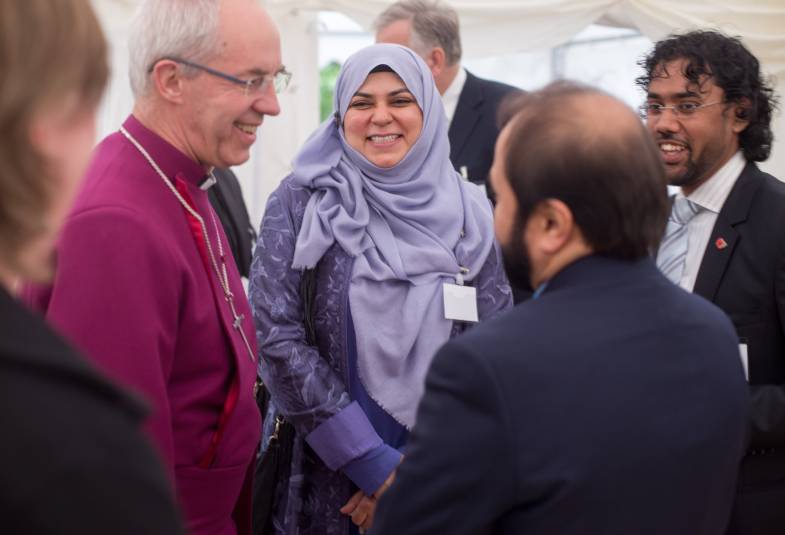
Faith and community leaders from across the country were welcomed to Lambeth Palace last night by the Archbishop of Canterbury.
The event was attended by the Chief Rabbi, Ephraim Mirvis; His Excellency Martin Eichinger, the Ambassador for Austria; Canon Paul Hackwood, the Director of the Church Urban Fund; and esteemed Muslim guests, along with other faith and community leaders from a wide range of traditions, as well as many people involved in grassroots faith-based community work. These included a group of young Muslim and Christian women from the charity The Feast in Birmingham, and young Jewish people who’d taken part in the Catalyst leadership programme.
The evening was an opportunity to showcase and affirm the grassroots community work of faith groups around England, particularly that of the Church of England’s Near Neighbours programme, run by the Church Urban Fund.
Read the Archbishop's welcome speech:
This is such a special evening for us in the year. You look around and there is such an amazing diversity of people from within the United Kingdom who contribute in so many extraordinary ways to the life of our country. Fifty or 100 years ago it was inconceivable to have this kind of group here, and it is just such a privilege that you are here this evening.
The faith communities contribute uniquely to the public sphere in this country, and I think this is something that is more and more being recognised when you look at social engagement from the faith communities, of all sorts. It represents literally billions of pounds of contribution, if the Government had to pay for it every year.
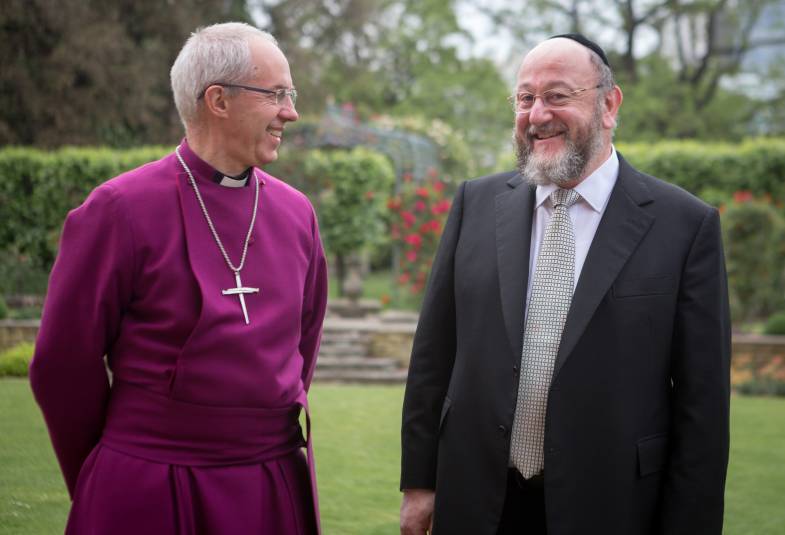
It reaches out in a way that values the human person in a way that the machinery and institutions of bureaucracy, however well intentioned, find very difficult. It’s done with people doing things because they love each other, and I think that is an extraordinarily moving fact and one that we need to celebrate.
It’s the thing that says that a faith-based view of the world is not a medieval hangover or an inarticulate expression of a dream for a golden age of the past; but is in fact a very correct way of looking at the world around us. Rowan Williams expressed that brilliantly time and time again, and his expression of that was something that I learnt much from.
Equally, we come together, in philosophical terms, with an overarching narrative of what life is about. We have different narratives, we disagree on some of the central features of those narratives, but we believe in the idea that life only makes sense in the context of an overall, overarching narrative based in our scriptures, in our traditions, in our community life, in our history. And that, again, is a challenge to much of the postmodernist and secularist approach that says we each make up our own identity.
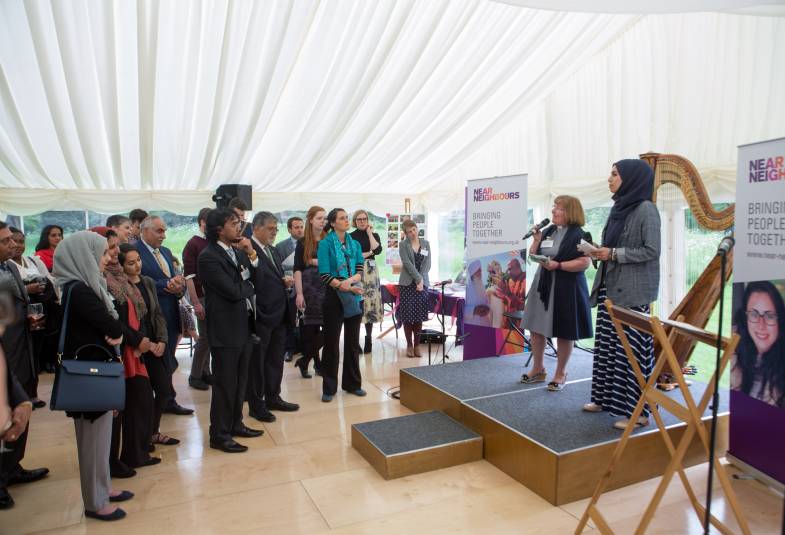
I’ve been doing some discovering about identity recently, and it is so important for human beings to find that their true identity is in whom God has made them – not in who they make of themselves.
There is the old joke many years ago, they say of someone: “They’re a self-made man and they worship their creator.” There is that sense that people make themselves up and then they think that what they are is ideal.
We come together knowing that we are accountable to greater truth and deeper meaning. We may disagree on that. We may want to debate about that and discuss about that. But we have that deep sense of deeper meaning. And I am so grateful for the fact that we can work together and share our common desire for the flourishing of every human being in this country.
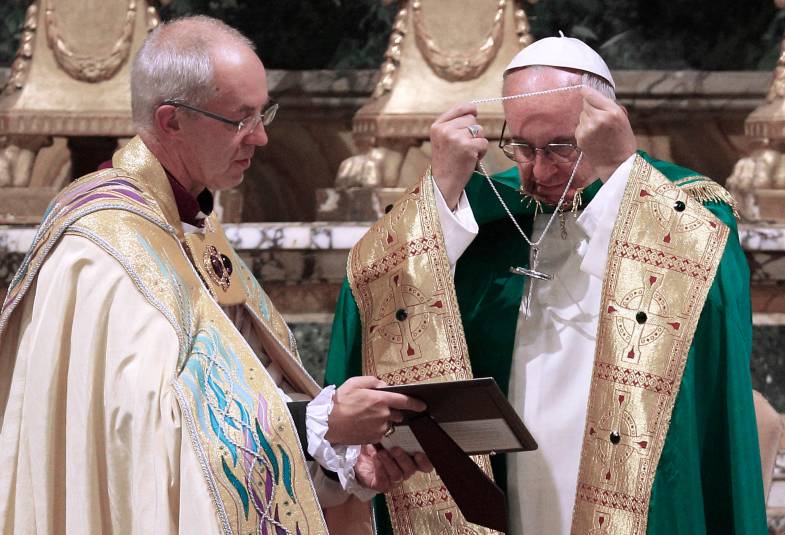
t’s funny in my job how particular themes come back again and again over a course of time. In recent months it has been the parable that Jesus told of the Good Samaritan: a man is on his way down from Jerusalem to Jericho, he gets beaten up, left for dead by the side of the road by some robbers.
The first person past is, believe it or not, a priest, who is busy, his diary is very full and he says to himself, ‘Oh dear, oh dear’, and he passes by on the other side. The next person is a lawyer and he looks at this, looks at his diary and says ‘I’m really busy’, and passes by on the other side. The next person is a Samaritan – the deep and bitter enemy of the man who has been beaten up – and he picks him up, cares for his wounds, pays for his care and treats him as a human being.
Near Neighbours is a much less dramatic but an expression of that sense – which is again common to our faiths – of care for the neighbour, of the desire for the human flourishing of each other.
This evening we have the chance to celebrate a truly flourishing, a resilient and cohesive society being only possible through initial social interaction, association and community transformation, and that that is being in part contributed to by Near Neighbours.
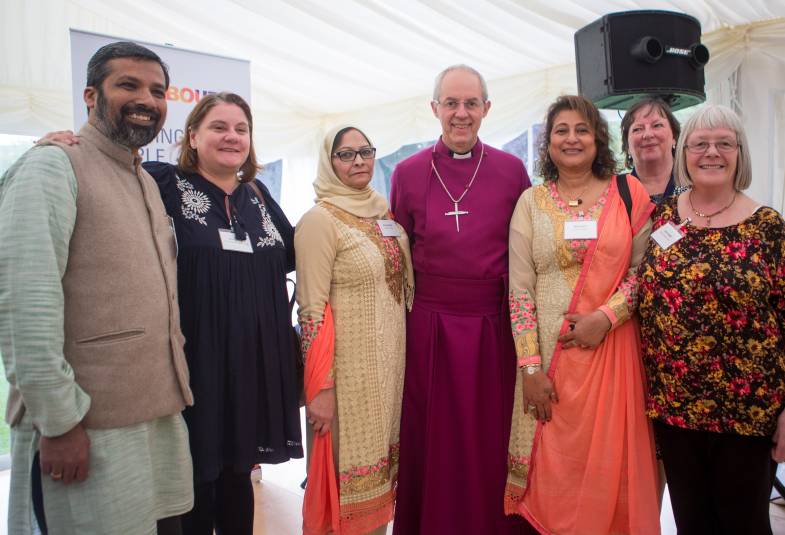
We are amazed, I think, many of us, looking back by the achievements of those like Paul [Hackwood] who have worked on this over the last number of years, many of you have been involved.
There is a new project just recently started in this area, round Lambeth, of twinning between a church and a mosque. This is not about joint worship but about joint effort to serve the community, and I praise God for that courageous step forward by the local churches and the local Muslim leadership, that is absolutely marvellous.
We have now got an extra year of funding, that’s another contribution from the Government. We are genuinely grateful to them. We really appreciate this contribution that has been consistent over a significant number of years now, and that has enabled these projects to run, and I want to say thank you for that funding. There is the indication that there may be more to come after the third phase, if this continues to go well, and I trust that that will in fact happen.
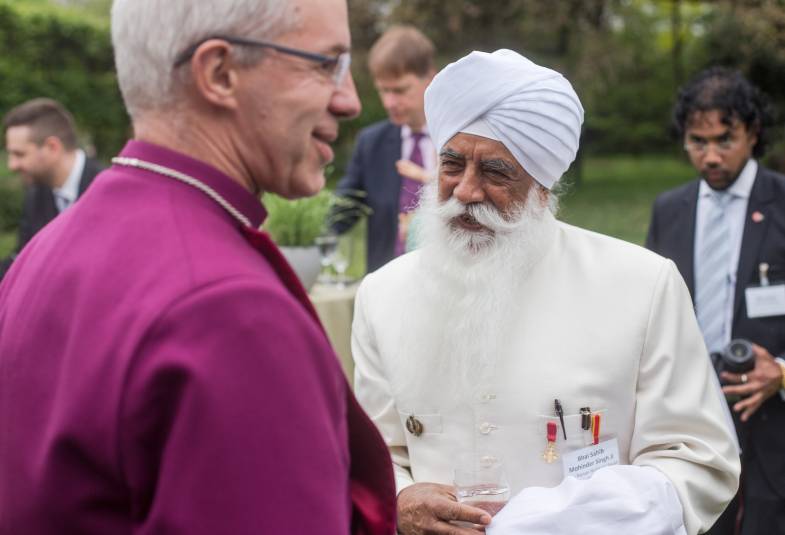
This evening is also about celebrating some of the things that we do best as faith communities. I think one of the things we do best as faith communities is parties. We are not all dour and miserable, saying to one another: “If you’re having fun, stop it.” Hospitality, centrality of prayer, community engagement, spirituality, growth in the spiritual life.
But we do this and we meet together in a context that is difficult. [There is] rising tension. I’m going to ask for us to observe a minute of silence and silent prayer for those who were on the aircraft that went down in the Mediterranean earlier this morning. There are huge numbers of people who are mourning this evening and we must pray for that. But we are in a time of rising tensions.
We’ve seen a very sharp rise, over the last couple of years, in anti-Semitic expression. Absolutely intolerable. It seems to me at the root is almost the paradigm, the way in which in Britain over the last thousand years we have learned how to do racism, it has taught us that – and it is a deep shame that it is ever anywhere. I’m not looking at any political party; it’s deeply embedded in so much of our culture in this country, as is racism, and many of you will have experienced that.
But particularly it comes out like a lightning conductor attracts the static electricity. Attacks on mosques. Dangerous political rhetoric, playing with words that raise tensions. The unthinking, ignorant, fearful nature of much phobia about different faith traditions. The false perception of people living parallel lives; here we are together – scarcely parallel lives.
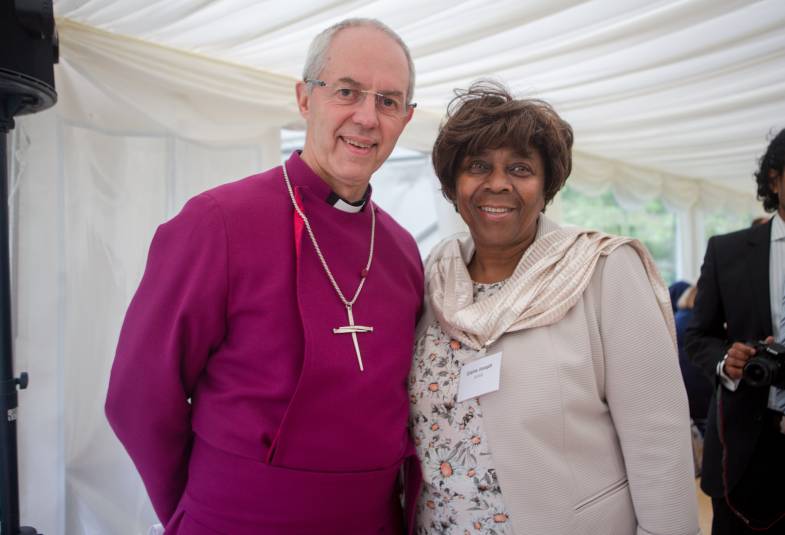
But where there are parallel lives, that’s something in all our faith traditions we are seeking to tackle. I spend quite a lot of time trying not to get grumpy when Christians comment on how dangerous it is about this faith tradition or that faith tradition, and saying: “Come on, look at the evidence.”
In the Church of England we have I think been regaining our nerve – this was led very much by my predecessor, Rowan, so I take no credit for it – in both our prayer for and our commitment to community transformation. We’ve recently had, as is deeply traditional within the Christian tradition, nine days of prayer from the Feast of the Ascension to the Feast of Pentecost, for our confidence in sharing good news – not in proselytism, but in sharing good news, of being open, hospitable, loving, in seeking to transform our communities as well.
This is the season of Pentecost in the Christian tradition, which is understood as fresh commitment, as Christians seeking the Spirit of God to fill us, to enable us, to express the love of God effectively, overcoming all our inhibitions and fears, to be those who love without counting the cost.
Within the Christian tradition the Spirit of God is a Spirit of creativity, of art, of beauty. The Spirit leads us to a commitment to the common good, and enables, liberates our imagination to innovative responses to challenging contexts and environments, and is the Spirit of hope. That’s our seasonal context within the Christian year.
So a difficult context, socially, but great signs like this evening and what you all represent. I want to say how privileged I feel to meet you, to have an evening like this, to hear about what we’re doing in Near Neighbours – and that will be but a millionth of what is going on in this country. Thank you for your leadership, thank you for coming here this evening.